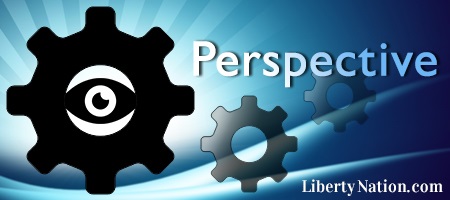Controversial ideas are not welcome.
The Foundation for Individual Rights and Expression (FIRE) released its sixth annual College Free Speech Rankings on September 9 and found that support for free speech among students continues to decline. Out of 257 schools, 166 received an F for their “free speech climate.” For the first time since 2020, a majority of students said they would prevent speakers from entering campuses to express controversial views, regardless of which side of the political aisle the speaker represents. About one-third said using violence to stop somebody from giving a speech on campus can be justifiable. That fact is even more terrifying when considering Charlie Kirk, founder of Turning Point USA, was shot to death yesterday while speaking at Utah Valley University.
Freedom From Free Speech?
The survey included responses from 68,510 students throughout the political spectrum, most of whom appeared reluctant to face controversial ideas. FIRE used these responses combined with information from its databases, “which track deplatforming attempts, cancellation efforts targeting students and faculty, and each school’s speech code policies,” according to its website.
 This year, even fewer students believe people should be allowed to express controversial ideas on campus, and they are becoming more accepting of their peers disrupting speech to suppress undesired views – even if, in some cases, that means resorting to violence. “These aren’t isolated findings,” explained FIRE, “they represent a troubling, accelerating shift on campuses across the country.”
This year, even fewer students believe people should be allowed to express controversial ideas on campus, and they are becoming more accepting of their peers disrupting speech to suppress undesired views – even if, in some cases, that means resorting to violence. “These aren’t isolated findings,” explained FIRE, “they represent a troubling, accelerating shift on campuses across the country.”
More than 75% believe it’s okay for their peers to “shout down” speakers to interfere with speech they dislike in an effort to stop a planned talk from happening. When asked about six hypothetical situations involving controversial speakers from the left and right, a majority of students opposed allowing them on campus. More than half of those surveyed said “blocking entry to an event is acceptable.” Nearly 35% said using violence – “at least in rare cases” – is permissible to stop a person from speaking on campus.
“More students than ever think violence and chaos are acceptable alternatives to peaceful protest,” said Sean Stevens, FIRE’s chief research advisor, on the organization’s Substack newsletter. “It is not a liberal or conservative problem – it’s an American problem. Students see speech that they oppose as threatening, and their overblown response contributes to a volatile political climate.”
On the opposite side of suppression is self-censorship. About a quarter of students self-censor in the classroom and on campus. This aligns with other recent findings, though self-censorship might be worse than suggested in FIRE’s results. A survey published in The Hill, based on nearly 1,500 interviews with undergraduates at Northwestern University and the University of Michigan, asked students: “Have you ever pretended to hold more progressive views than you truly endorse to succeed socially or academically?” Eighty-eight percent said yes.
Best and Worst
In the number one spot, the most supportive of free speech, was Claremont McKenna. Purdue University came in second, followed by the University of Chicago, which ranked first in 2020 and 2022, the only institution besides Claremont McKenna to make the top spot more than once. Ranked fourth and fifth, respectively, were Michigan Technological University and the University of Colorado Boulder. The top five schools have what FIRE’s Policy Reform team calls “green light” ratings. All but Michigan have committed to a stance of “institutional neutrality,” and each has adopted the “Chicago Statement,” a free speech policy statement that many higher-ed institutions use to affirm “their commitment to free expression.”
Last place was Barnard College, followed by Columbia University and Indiana University. Barnard also came in last for the “Administrative Support” component, indicating its administration does very little to protect free speech on campus and, if anything, impedes expression. Both landed in the worst five for “Comfort Expressing Ideas,” with Barnard in the bottom ten for “Self-Censorship.” Indiana University, the third worst in this year’s overall rankings, scored poorly on “Openness,” “Self-Censorship,” and “Comfort Expressing Ideas.”
Colleges were once foundational to sharing ideas and debating. Now, “[r]ather than hearing out and then responding to an ideological opponent, both liberal and conservative college students are retreating from the encounter entirely,” said Greg Lukianoff, FIRE’s president and CEO. “This will only harm students’ ability to think critically and create rifts between them. We must champion free speech on campus as a remedy to our culture’s deep polarization.”
This continued decline of free speech among college students is beyond the warning stage. If nothing changes, what will America’s future be after this generation has been in the workforce for a decade or so? What will happen when they enter politics and law?
Liberty Nation does not endorse candidates, campaigns, or legislation, and this presentation is no endorsement.

















